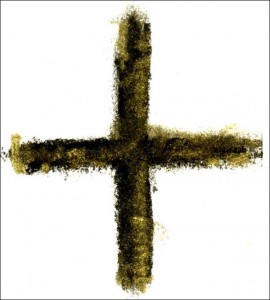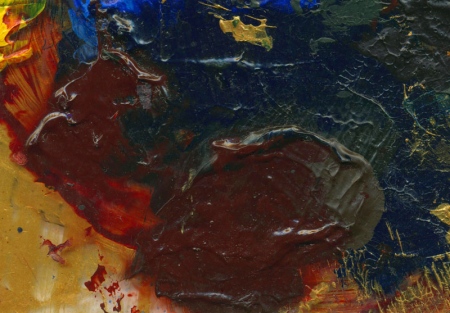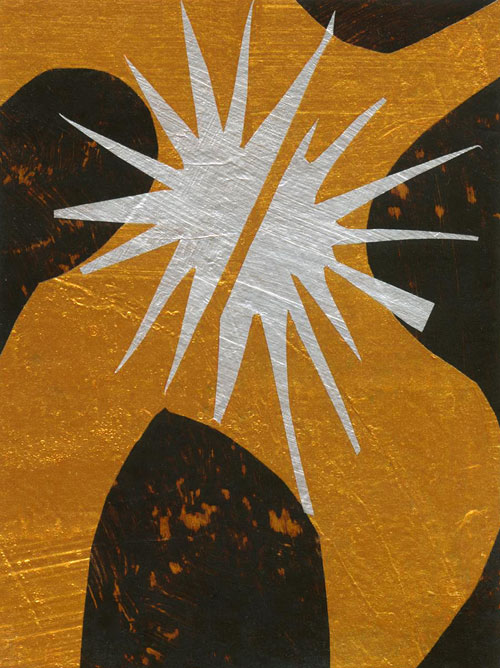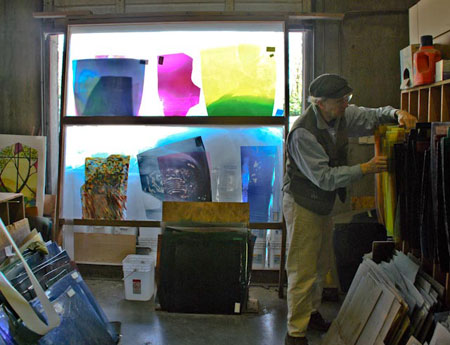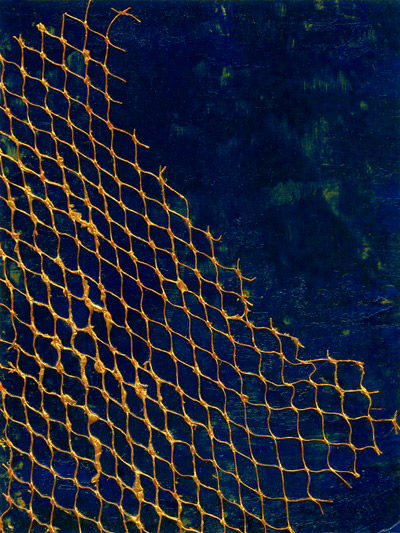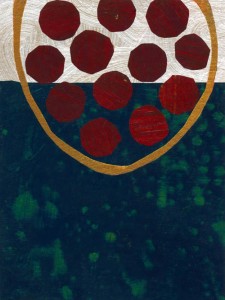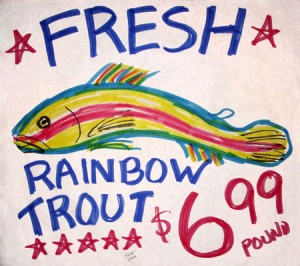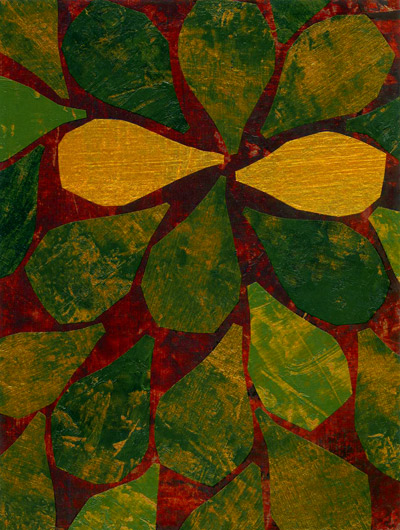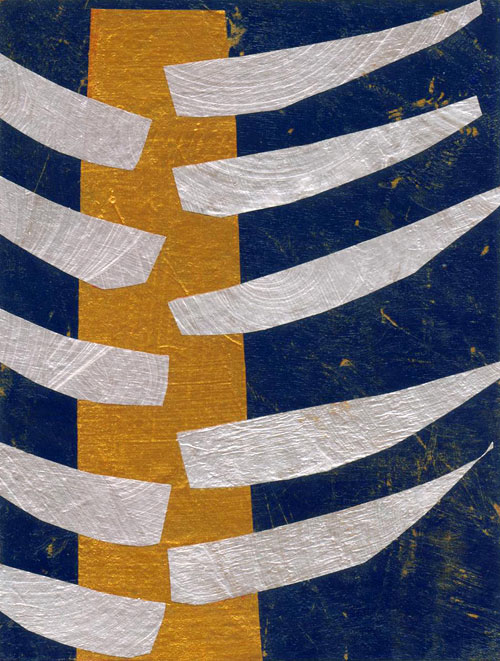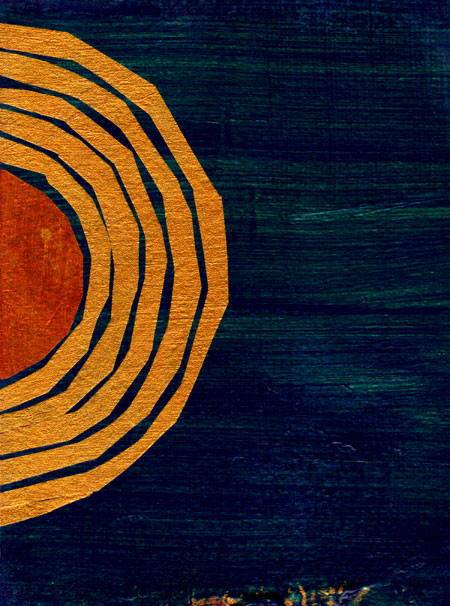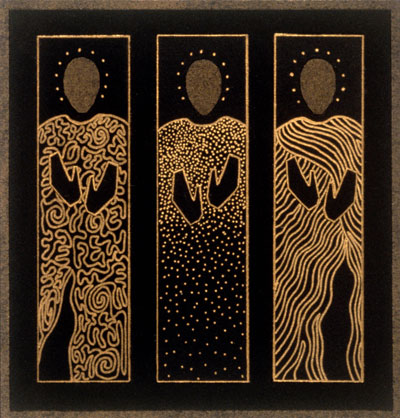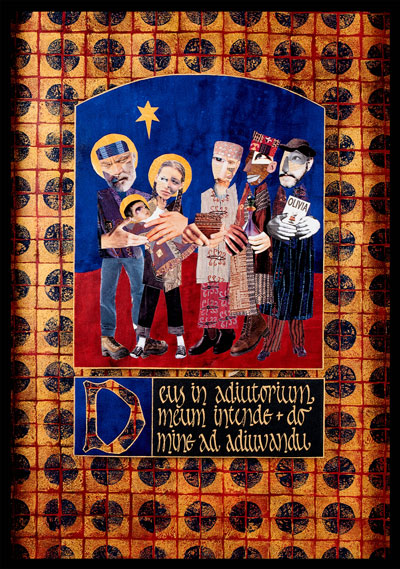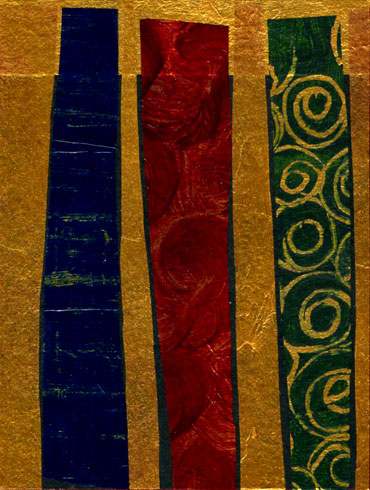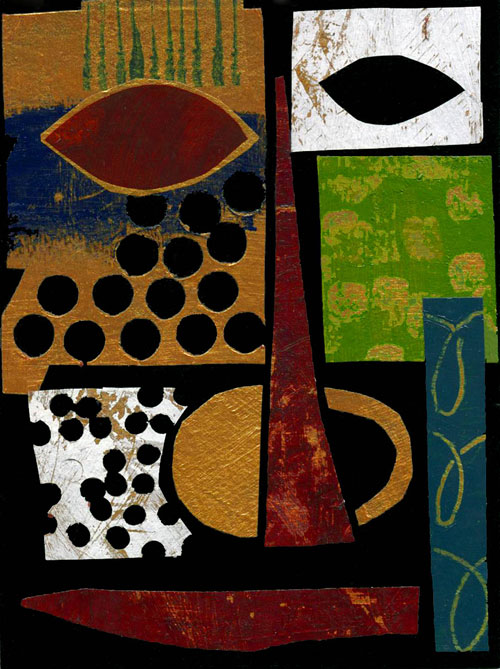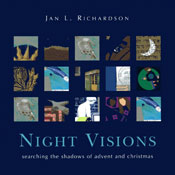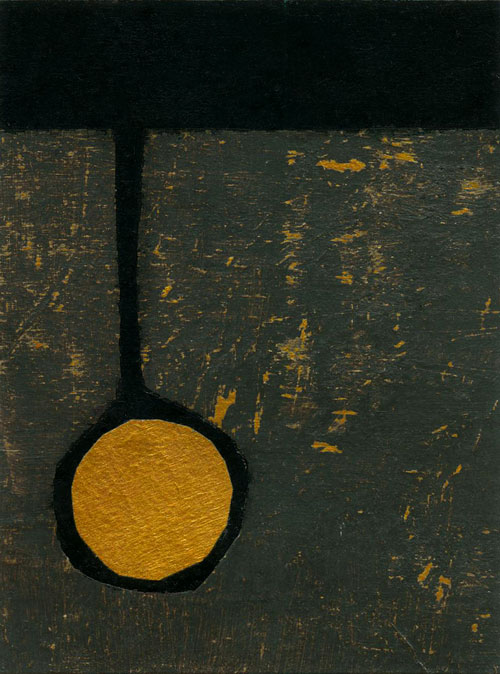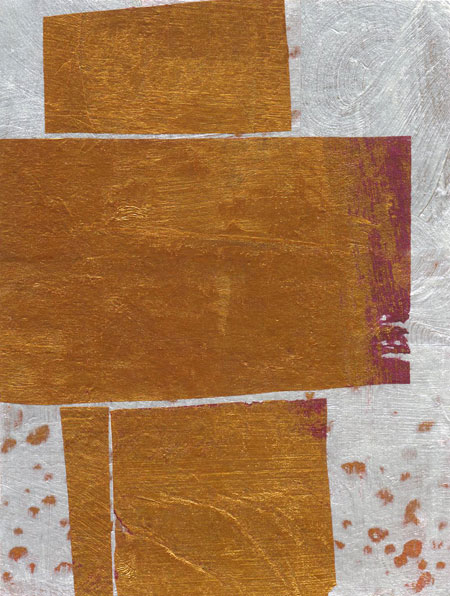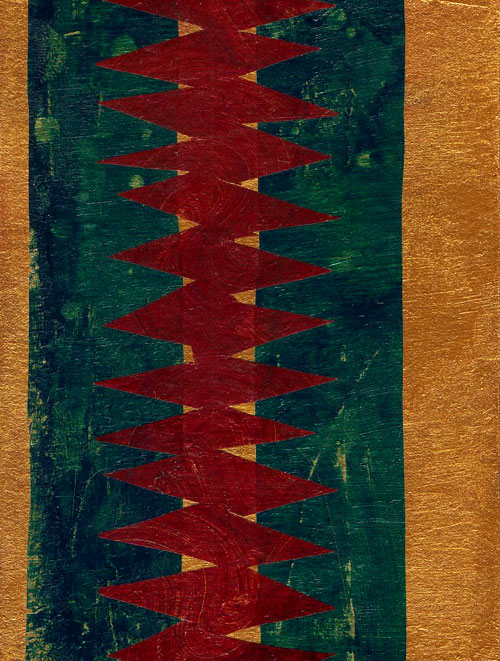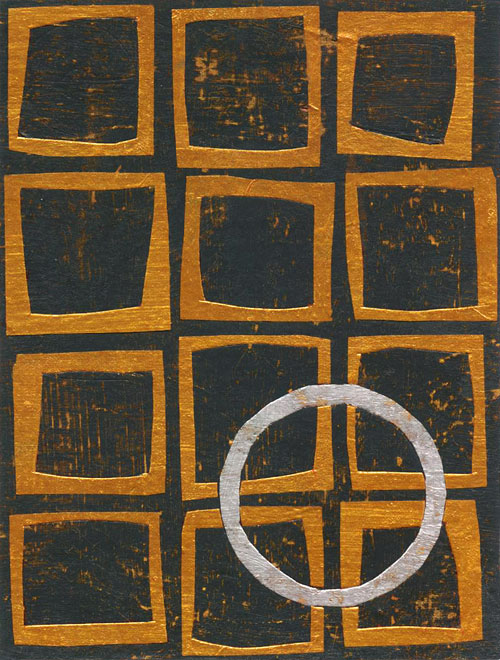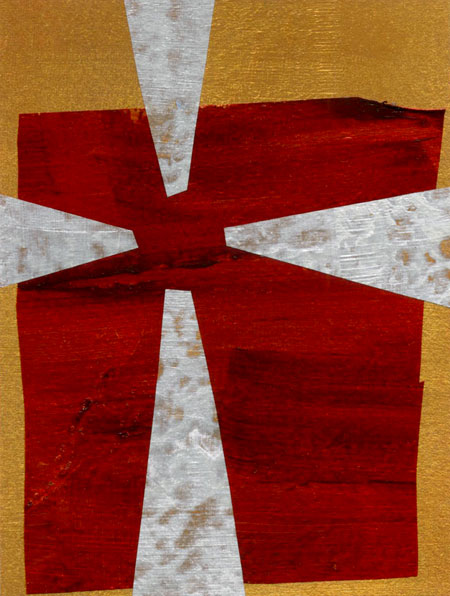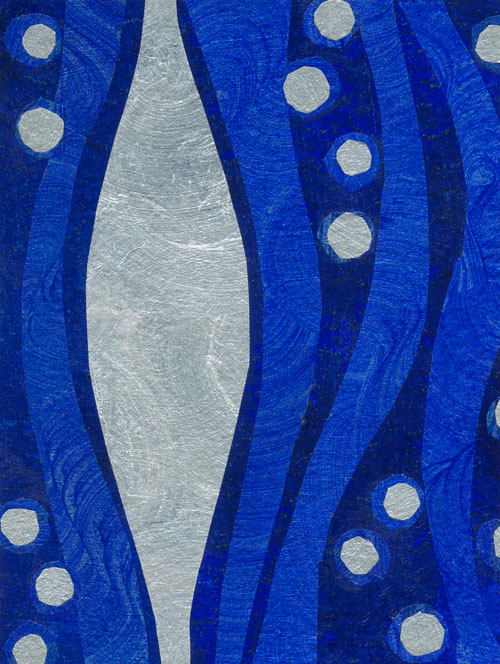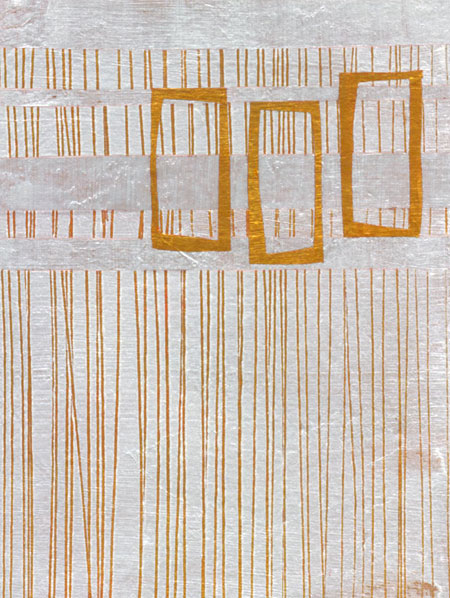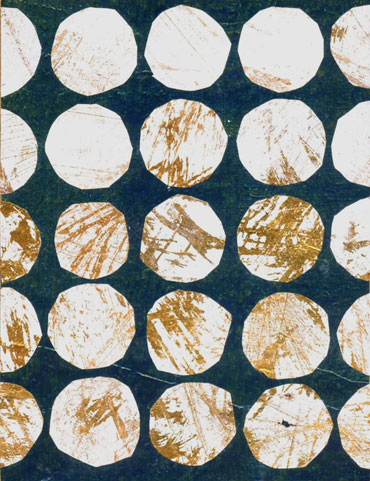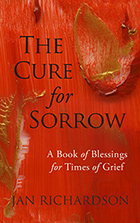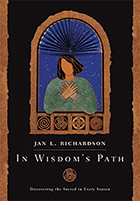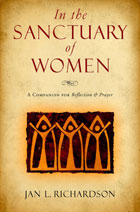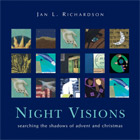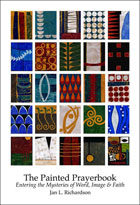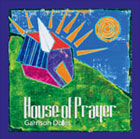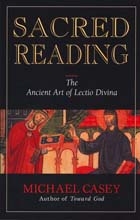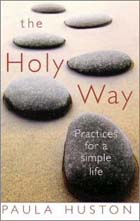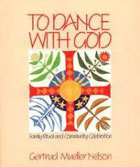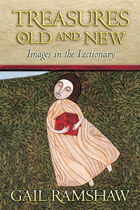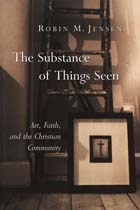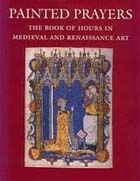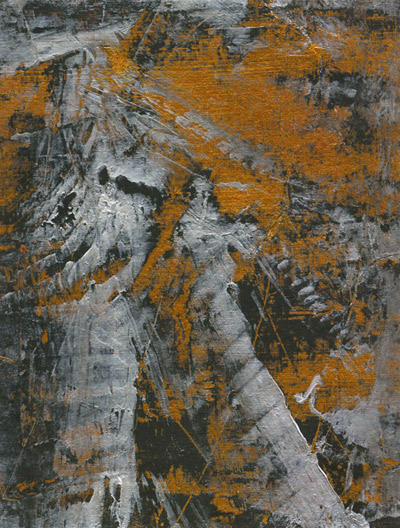
Image: Shimmers Within the Storm © Jan Richardson
Reading from the Gospels, Epiphany 4, Year B: Mark 1.21-28
In his brilliant essay “To Retrieve the Lost Art of Blessing,” John O’Donohue writes, “The force of a blessing can penetrate through and alter the inner configuration of identity. When the gift or need of the individual coincides with the incoming force of the blessing, great change can begin.”
This kind of change and reconfiguration means that a blessing is not always a comfortable and cozy thing. Sometimes the blessing most needed is one that involves confrontation and calling out, that requires standing against what is not of God. Such a blessing may be difficult to give—or to receive. It calls us to acknowledge and challenge and grapple with forces that thrive within chaos, forces that often work in ways that are exceedingly subtle and cloaked and require even more wisdom and discernment of us than when such forces take clear and obvious forms.
But, as Jesus shows us in this passage where we see him healing a man in the grip of a destructive spirit, such a blessing—the blessing that comes in facing the chaos rather than turning away from it, the blessing that comes in naming what is contrary to God’s purposes rather than letting it persist unchecked—makes way for the wholeness we crave. It brings release to what has been bound; it invites and enables and calls us to move with the freedom for which God made us.
“The human heart,” writes John O’Donohue in his essay, “continues to dream of a state of wholeness, a place where everything comes together, where loss will be made good, where blindness will transform into vision, where damage will be made whole, where the clenched question will open in the house of surprise, where the travails of a life’s journey will enjoy a homecoming. To invoke a blessing is to call some of that wholeness upon a person now.”
Is there some part of you that has become bound—that recognizes what is holy and craves its blessing, but fears the change that would be involved? Is there a habit, a belief, a relationship, an aspect of your life that has you in its grip, that confines you, that limits the freedom with which you move through this world—perhaps without your even realizing it? Can you imagine what release would look like? Is there a destructive force at work in a person or system or institution you’re connected with, that you might be called to engage? Can you identify a first step that would help you confront what confines you or those around you?
Here is a blessing I’ve written for you. This day, this week, may you give and receive a blessing that will help you and yours enter more deeply into wholeness. Peace to you.
Blessing in the Chaos
To all that is chaotic
in you,
let there come silence.
Let there be
a calming
of the clamoring,
a stilling
of the voices that
have laid their claim
on you,
that have made their
home in you,
that go with you
even to the
holy places
but will not
let you rest,
will not let you
hear your life
with wholeness
or feel the grace
that fashioned you.
Let what distracts you
cease.
Let what divides you
cease.
Let there come an end
to what diminishes
and demeans,
and let depart
all that keeps you
in its cage.
Let there be
an opening
into the quiet
that lies beneath
the chaos,
where you find
the peace
you did not think
possible
and see what shimmers
within the storm.
—Jan Richardson
Thanks for noting that while “Blessing in the Chaos” has circulated widely as being by John O’Donohue (due to some folks seeing his name in the post and assuming the blessing was by him), it’s by me.
2016 update: “Blessing in the Chaos” appears in my new book The Cure for Sorrow: A Book of Blessings for Times of Grief.
For a previous reflection on this passage, click the image or title below:
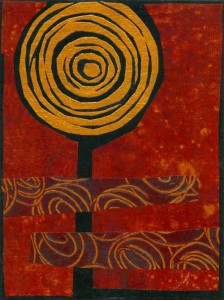
Epiphany 4: In the Realm of the Spirits
Also, I have a new blog endeavor at Devotion Café and would be delighted for you to stop by and visit; click Devotion Café.
And—I’ve recently added a feature that enables you to subscribe to The Painted Prayerbook. If you’d like to receive these blog posts via email, fill in the “Subscribe by email” box in the sidebar (near the top, a bit below my photo). After you submit your email address, you’ll automatically receive an email asking you to confirm your subscription. Once you’ve confirmed this, you’ll begin receiving these reflections.
Using Jan’s artwork
To use the image “Shimmers Within the Storm,” please visit this page at janrichardsonimages.com. Your use of janrichardsonimages.com helps make the ministry of The Painted Prayerbook possible. Thank you!
Using Jan’s words
For worship services and related settings, you are welcome to use Jan’s blessings or other words from this blog without requesting permission. All that’s needed is to acknowledge the source. If you’re using them in a worship bulletin, please include this info in a credit line:
© Jan Richardson. janrichardson.com.
The prose quotations from John O’Donohue are from his book To Bless the Space Between Us.
